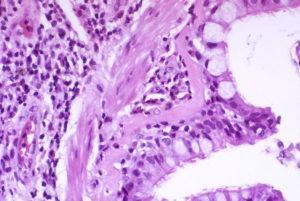The role of the mechanistic target of rapamycin (mTOR pathway) in asthma was not well understood although it is known to have effects on immune responses. Scientists from Zhengzhou University in China, have now found that the activation of this pathway plays a role in the onset of asthma. This finding suggests that this may be an essential pathway to target in asthma therapy.
Asthma has been associated with a loss of balance between Th1 and Th2 responses. Altered Treg and Th17 responses have also been shown to be crucial in the onset of the condition. Th17 cells secrete IL-17 which is responsible for the regulation of pulmonary inflammation and Tregs secrete TGF-β and IL-10 which are also responsible for suppression of immune responses.
The mTOR pathway involves mTOR, a serine/threonine kinase which regulates cell growth and survival. PI3K also forms part of the pathway and phophorylates Akt which activates mTOR and another protein known as S6K1. A dysfunctional mTOR pathway has been linked to diseases such as cancer and systemic lupus erythematous. Since asthma is a disease that is caused by an immune imbalance, the authors hypothesized that the mTOR pathway was likely causing the Th1/Th2 imbalance seen in asthma patients and investigated whether inhibiting the mTOR pathway would suppress asthma onset.
The authors found that mTOR activation was significantly higher in patients who experienced asthma attacks as opposed to those who has pneumonia or healthy controls. Asthma patients had higher Il-17 and IL-4 levels when compared to the other groups but had lower regulatory (TGF-β, IL-10) and Th1 (IFN-γ) responses.
To further delineate the role of mTOR in the onset of asthma, the authors used an ovalbumin-induced asthmatic mouse model. They gave these mice mTOR inhibitors including rapamycin. This is an antibiotic which is now commonly used as an immunosuppressive drug and it targets mTOR. The authors also used LY294002 and triciribine, PI3K and Akt inhibitors, respectively. The mTOR inhibitors reduced asthma markers and also reversed the immune imbalances observed with the onset of the condition.
In summary, this study shows that the mTOR pathway plays a role in the onset of asthma. This pathway therefore has potential as a therapeutic target for asthma treatment. The effect mTOR inhibitors have on different asthma stages and on other human pathways should be further investigated.
Journal article: Zhang et al.,2017.Activation of the mTOR signaling pathway is required for asthma onset. Scientific Reports
Article by Thandeka Moyo












